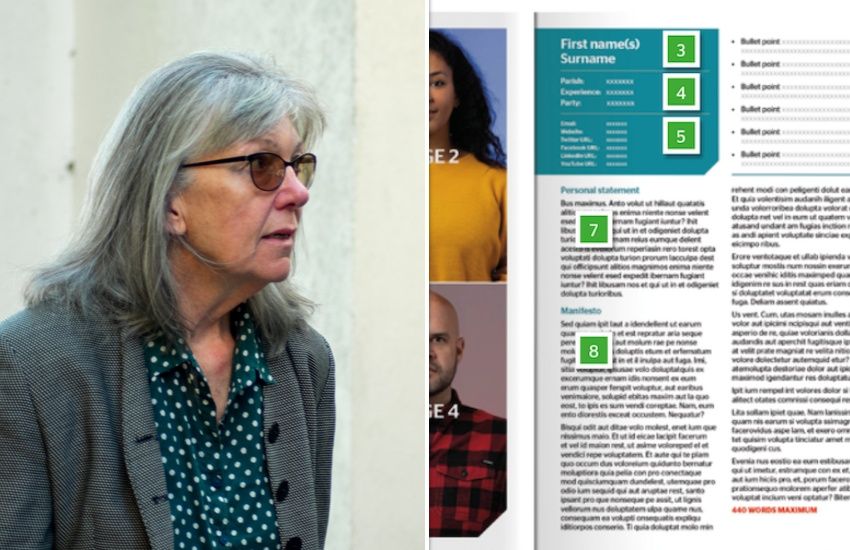


Revelations that candidates at the last election submitted handwritten manifestos, didn’t have to proofread their own words, along with a likely doubling of the production time for the combined manifesto booklet, has led the States Assembly & Constitution Committee to stick with the status quo ahead of the next election.
The Committee was advised that 29 days would be required to produce and print the booklets if each candidate was allowed four pages, up from two in 2020 when it was first introduced for the island-wide voting system.
This would be up from 16 days for the 2020 production and print schedule - with nine days taken to set and proof pages, and seven days to print tens-of-thousands of copies off-island.
A representative from the private production firm said just 10% of candidates submitted correct images and text at the first attempt leading to a back and forth toget the booklet right, while 15 people hand wrote their manifesto content, and more requested repeated copy changes while reviewing pages.
They said four pages would be possible, but production kinks would need to be ironed out including stricter requirements on candidates to proof their own writing and ensuring the correct word count and image sizes earlier on.
Deputy Yvonne Burford raised concerns in April’s SACC meeting that public feedback had shown the manifesto booklet was the key material informing voters’ choices and responses to a survey highlighted a demand for more information inside it.
SACC members instructed officials to carry out further investigations into costs and production timeliness, but Deputy Burford admitted this week it’s “not a battle I’m going to win”.

Pictured: The two-page format is likely here to stay.
Debate brewed in the Committee over the leeway given to candidates to have multiple “cracks” at getting their submission correct, which was prolonging the production schedule even with just two pages per person.
Deputy Burford questioned whether the “airbrushing” of text to remove spelling and grammatical errors and the standardised format should continue as those mishaps spoke to the competencies of the candidates which should be on show to the electorate.
She said it was “astonishing” that so many had handwritten their material to then have it typed up at a cost to the States and noted that in previous district elections “there were some horrors” when candidates had to produce their own manifestos.
SACC President Deputy Carl Meerveld agreed, saying if low-resolution images and spelling mistakes are supplied “then so be it”.
But Deputy Simon Fairclough suggested that the reputation of the printing firms, the States of Guernsey, and the island would be at stake if an official document was allowed to contain poor quality information.
“This was a good document,” he said referring to the 2020 edition, adding that the public may question why standards reduced in 2025 if standardisation and proofing was removed.
Deputy Burford agreed the booklet “on the outside” was a government document, but not on the inside.
The production firm did say it would be stricter on deadlines and proofing in 2025 having learnt from the first island-wide election.
Comments
Comments on this story express the views of the commentator only, not Bailiwick Publishing. We are unable to guarantee the accuracy of any of those comments.